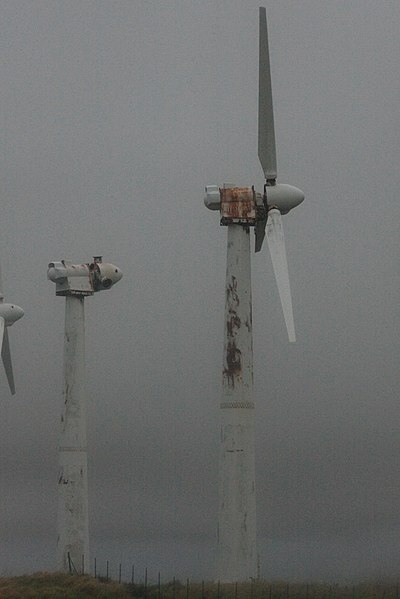The Michigan Senate recently passed three bills that enforce aggressive green energy policies for the state and its electric power providers.
The bills, passed along party lines in the Democrat-controlled Senate, impose strict carbon-dioxide emission reduction goals on the state energy grid. SB 271 requires energy companies to meet deadlines for transitioning to renewables. They are required to generate half of all energy with renewables by 2030, 80 percent by 2035, and 100 percent by 2040. Last minute changes to the bill allowed new, but not existing, nuclear power plants to count toward the bill’s goals.
Natural gas is also allowed as long as power plants using it for fuel install carbon capture and storage technologies, removing 90 percent of the carbon dioxide produced.
SB 273 requires energy providers to create energy waste reduction plans, which are intended to “influence” or force “changes in customers’ consumption patterns.” The Michigan Public Service Commission is also supposed to weigh equity concerns when analyzing those plans.
SB 519 creates committees and a Community and Worker Economic Transition Office to help employees in “transition-impacted industries” find jobs in the renewable energy field, after the laws eliminate their jobs at traditional power plants and industries that support them, like mining.
‘Increased costs and widespread grid instability’
If these bills pass the Michigan House, they will dramatically increase energy costs for Michigan residents, says Jason Hayes, director of energy and environmental policy at the Mackinac Center for Public Policy in a press release.
“While recognizing the need for energy sources like nuclear and natural gas is progress, these bills would still have drastic consequences,” Hayes said. “There’s no doubt that people would quickly experience increased costs and widespread grid instability as a result of a wind, solar, and battery backup-based electric grid.”
The state plan promises the transition will be “equitable,” and impacted communities are supposed to receive assistance, but still the prices will skyrocket, and the laws will not have the impact on the climate the politicians claim, says Hayes.
“Michigan ratepayers should know that it’s impossible to achieve net-zero goals on the cheap,” Hayes said. “Even these amended bills will continue to impose substantial costs on the average Michigan family while achieving little to nothing to actually address the climate change issue politicians claim they want to solve.”
Virtually No Impact on Temperatures
Even if Michigan were to achieve net-zero by 2050, 10 years past the date specified in the bills, it would make virtually no dent in average global temperatures, Hayes says.
“Estimates show that taking the state of Michigan to net-zero emissions by 2050 would only reduce global temperatures by approximately 1/1000th of a degree Celsius by the year 2100,” Hayes said. “Meanwhile, people can expect pay an additional $2,746 in energy costs each year just to experience more blackouts.”
Michigan residents already suffer from instability in the grid. Data from the U.S. Energy Information Administration shows that in 2021 Michigan saw nearly double the national average of electricity interruptions, and hundreds of more minutes of blackouts than neighboring states experienced.
‘Mass Exodus, Like California’
This kind of radical legislation is only going to push residents and jobs out of the state, says AnneMarie Schieber, a research fellow at The Heartland Institute who lives in Michigan.
“The big question is by 2040, when this ‘100 percent renewable energy standard’ is set to take place, whether anyone will be left in Michigan to be impacted by it,” Schieber asked. “The legislature and the governor, courtesy of their woke billionaire backers, are on a rampage to push through every piece of radical legislation that crosses their path.
“A 100 percent renewable energy standard will no doubt push car manufacturing prices through the roof and annihilate jobs,” Schieber said. “People will no longer be able to afford to live in Michigan: no jobs, escalating energy costs, and the state will be next in line for a mass exodus, like California. It seems like the only incentive here is to make Michigan decidedly and irrevocably blue. “
The Michigan House is also considering bills which would take away local communities’ right to veto large renewables development on their land, upsetting rural residents.
At the time of writing, the House bills ending local control of land use decisions with regard to renewable energy projects were referred to the House Committee on Energy, Communications, and Technology.
Linnea Lueken (llueken@heartland.org) is a research fellow with the Arthur B. Robinson Center on Climate and Environmental Policy at The Heartland Institute.
For more on green energy, click here.
For more on Michigan politics, click here.
